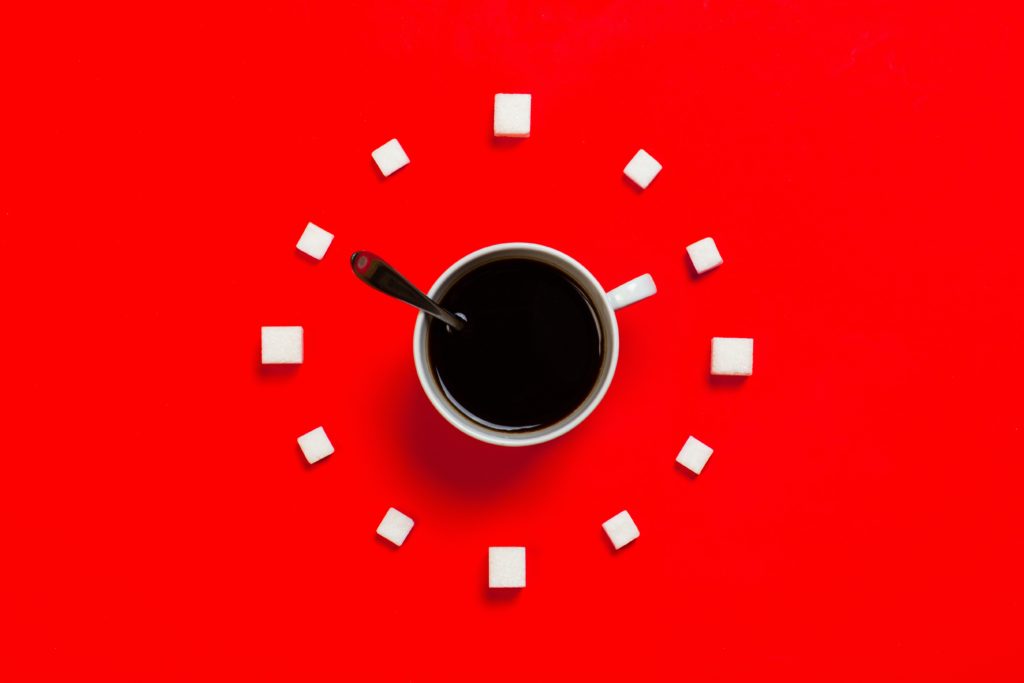Is Intermittent Fasting Right For You?

It's time to tackle intermittent fasting (IF). I know you've been eyeing it in all of it's appealing glory. Google says you can lose weight, burn fat, cure cancer, and live forever (among a laundry list of other amazing things). The best part? You don't even have to change what you're eating! I completely understand the appeal. But is intermittent fasting really the key to getting you the sustainable results you want? That's what I'm going to help you decide today.
This is the first of a few posts I'll be sharing on intermittent fasting. It's a big topic and I want to help you really understand the pros and cons of this style of eating. I also want to shed light on what goes on behind the major headlines (not just for IF but studies and health claims in general) so that you can make the most informed decisions about the way you're nourishing your body. (Skip to the end if you'd like the video version!)
We're going to cover 3 categories of people. Decide which group you fall under to help you decide if IF is for you.
1. You're Healthy and Happy
Do you already feel like you're fueling your body with healthy food? Do you have great energy levels throughout the day and is your stress under control? If this sounds like you, go ahead and experiment with intermittent fasting and see how you feel!
IF has the potential to trigger autophagy. That's a fancy science word that basically means self-eating. While that sounds grotesque, it's actually a really important process for your body to keep things functioning optimally. It gets rid of damaged cells to make room for new healthy cells.
You don't want your body to end up as a wasteland of dysfunctional cells - that sets you up for diseases like cancer, accelerated aging, and cognitive decline. By taking at least a 10-12 hour break from eating you start to stress your body in a way that triggers pathways that are helpful for survival. This is a majorly simplified summary, but I want to give you a sense of where some of the longevity and anti-aging claims stem from.
2. You want to lose weight and/or burn fat and get healthier, but you want it to be simple.
Intermittent fasting can be super appealing if you fall under this category. If you want to lose weight or burn fat, or if you've been told that you're pre-diabetic, insulin resistant, or have elevated triglycerides (etc...) IF can sound like a great option. Your doctor may have even recommended it! While I ALWAYS encourage you to consult with your doctor, they likely are recommending this for the same reason you're drawn to it: it's simple.
It may be simple, but here's the buzz kill: there are other options that are going to get you much greater results than if you are just controlling the period of time when you're eating.
After reviewing a lot of the literature on IF, here's my quick and dirty summary: results vary and may not be as epic as you think. For example, is your goal weight loss? Many of the 8-12 week studies just showed an average weight loss of 2 to 3 pounds. Those studies were done in overweight and obese populations who had weight to lose. After 2 to 3 months of restricting the time they were eating, that was the result. Not super impressive, right?
If your goal is to be feeling good and getting results, you're going to have to do a little more work if you want to see really amazing results. That "work" can be enjoyable though! If you find what works into your lifestyle and the food that you can ADD into your diet instead of focusing on what you need to restrict, you're going to find that you feel so much more satisfied and energized. Those changes will create a really awesome snowball effect. The better you feel, the more motivated you'll be to add on more positive changes. It's a pretty great feeling.
When I looked at IF studies, some of the results suggest those individuals weren't experiencing that same snowball effect. In reality, it seemed to make them less motivated to do other positive behaviors like moving around or making good food decisions. Ultimately, it's always important to pay attention to the influence "healthy habits" are having on your overall mood, energy, and lifestyle to find what works best for you.
3. You're stressed, need more energy, or have a history of disordered eating.
Are you stressed, anxious, or suffering from low energy? If this sounds like you, please don't try intermittent fasting. Remember how I mentioned that IF works by stressing your body into survival mode? That's not something you need right now.
If you're trying to conceive, pregnant, or nursing, then I would strongly discourage IF. Right now your body needs to be nourished with amazing nutrients and fueling appropriately not restrictive eating or fasting.
If you have a history of disordered eating, I absolutely would not recommend IF. Unfortunately, I do see intermittent fasting sometimes serving as a healthy label or excuse to mask unhealthy eating behaviors. If that resonates with you, I really encourage you to focus on the amazing food that you can add to fuel your body to thrive. (And also consider working with a professional who will support you through that shift in mindset towards a nourishing relationship with food).

12:12 Time Restricted Feeding
Are you reading this thinking, "Fine, I get it...you want me to be nourishing my body with healthy food but I still want to try IF"? I see you. The place I would recommend that you start is the 12:12 time restricted feeding approach. A twelve hour break from food is very reasonable, especially because it includes when you're sleeping! And those 12 hours are (potentially) enough to start triggering some of the health benefits without stressing you out too much or being too restrictive.
This 12:12 approach can also be really helpful for curbing late-night snacking. In general, I find most people tend to not make super nourishing food decisions after around 8pm. Am I right? At that point, the reason we're still eating is because we're bored, it's a habit while watching tv, we've been drinking, or we're using food to cope with emotions. Having a clear cut-off time in the evening can make it easier to say no to the sweets or salty snacks calling to you in the kitchen.
Ultimately, you, your body, and your lifestyle are completely individual. Any time you're experimenting with something new, it's important to check in with how you feel, how your energy levels are, and if it's something that makes sense for you long-term. That's what I want for you! I don't want you to lose weight but feel miserable or for those results to not be sustainable. I want you to love the way you look and feel and to enjoy the process for long term success. If you want to start learning what foods work best for you while jumpstarting your health, here's how you can get started today!
Have you experimented with intermittent fasting? Share your experience in the comments!

0 comments
Leave a comment